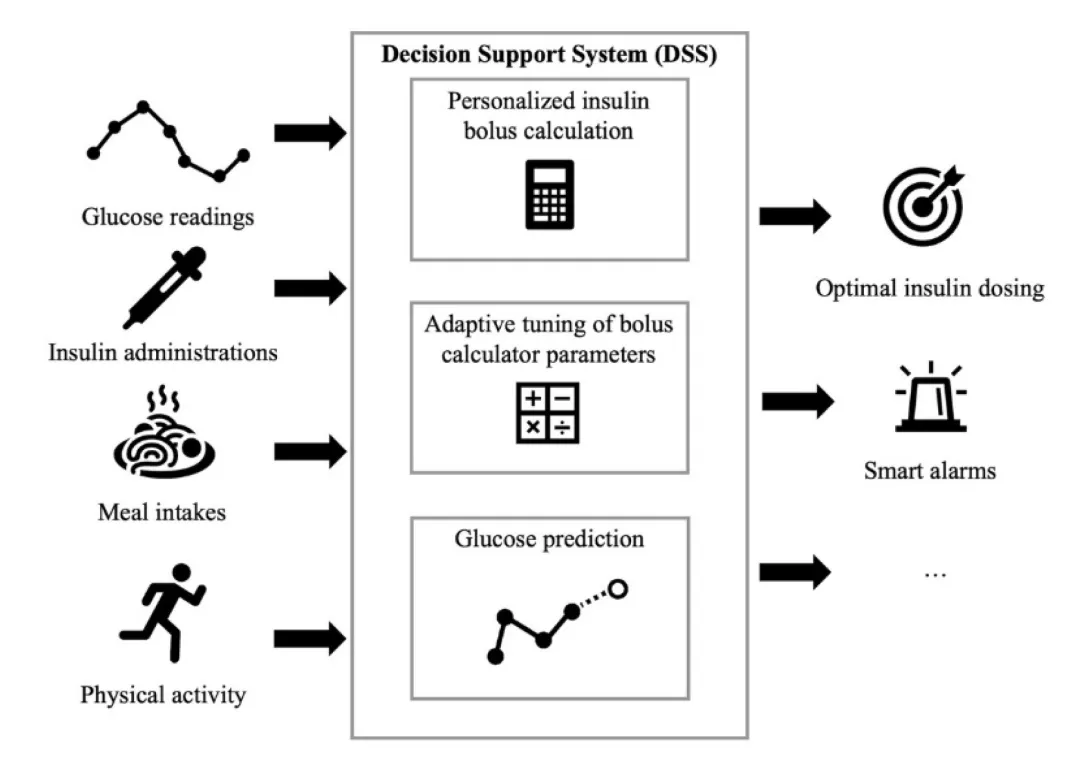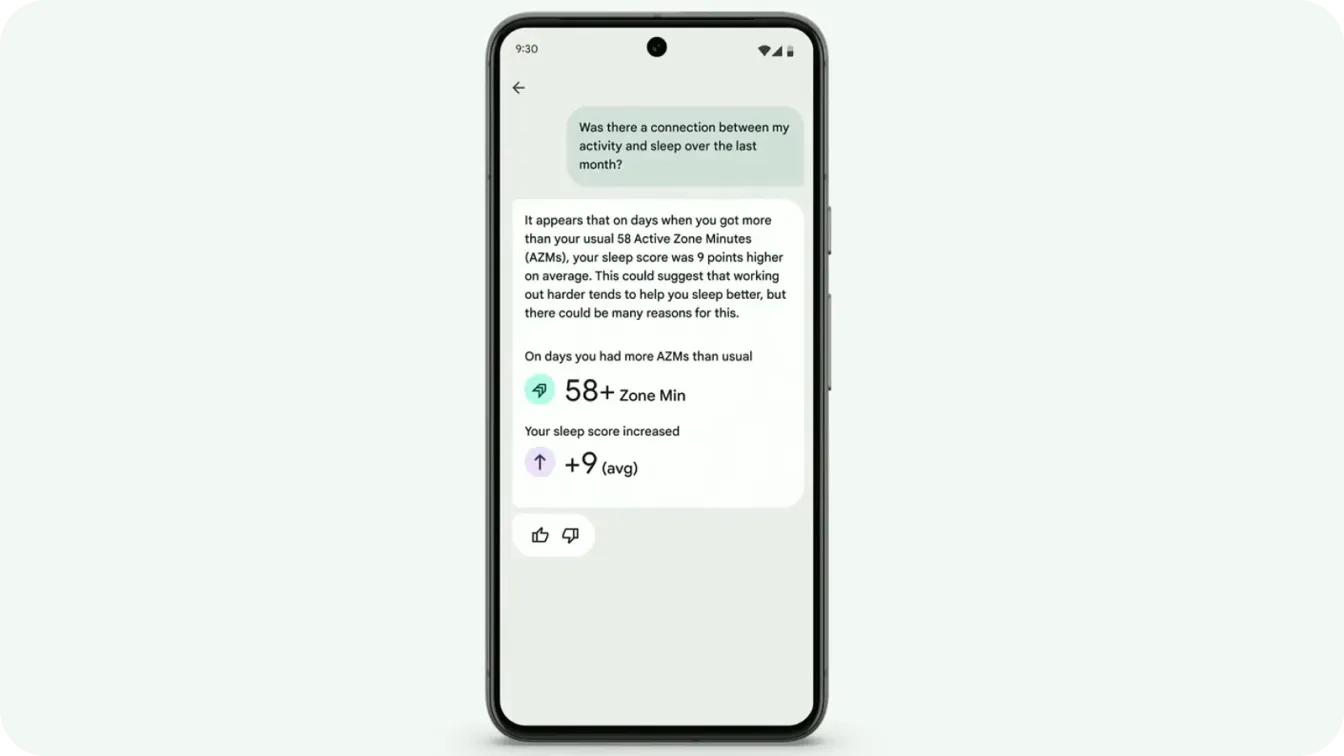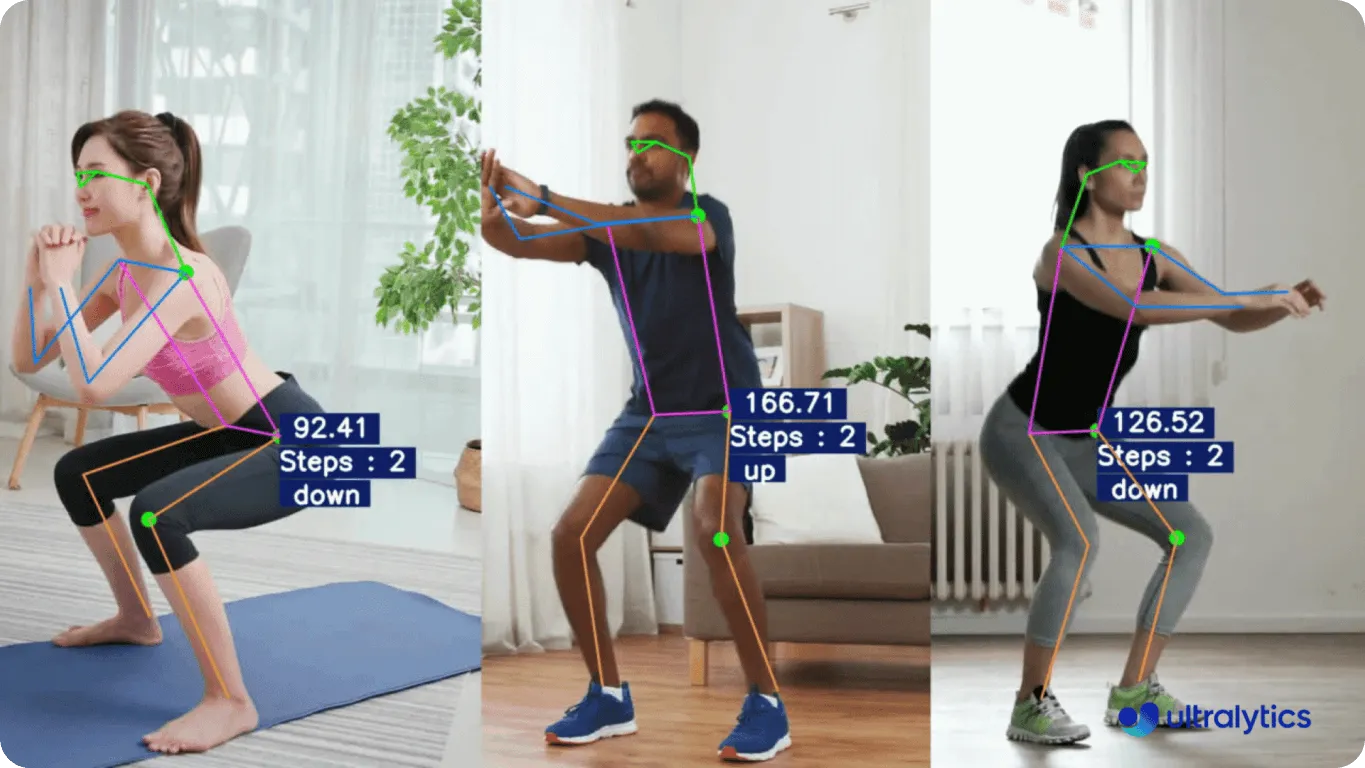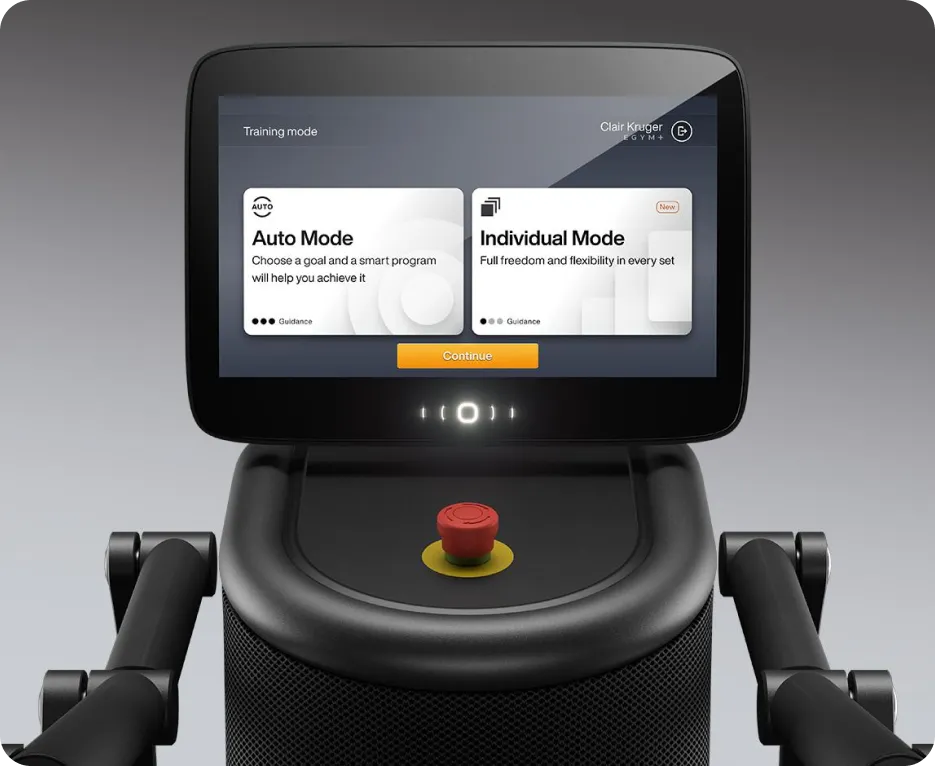Discover how AI enhances daily health and fitness routines for better well-being.

Discover how AI enhances daily health and fitness routines for better well-being.

In today's fast-paced world, managing our day-to-day health and fitness has never been more important. With busy schedules and numerous responsibilities, finding the time and energy to workout can be challenging. However, the evolution of technology has brought about incredible solutions in how we can approach and manage our well-being.
Today, Artificial Intelligence (AI), can be a game-changer in enhancing our daily health and fitness routines. From personalized health recommendations to advanced fitness tracking, AI is helping us take better care of ourselves in ways we could not have imagined just a few years ago.
In this article, we will explore how AI is transforming our daily fitness practices. It is making it easier to stay on top of our well-being and achieve our health goals. Whether you want to boost your fitness levels, maintain a healthy lifestyle, or track wellness goals, AI provides tools and insights to enhance your daily fitness routine and well-being. Let’s dive right in.
AI is making waves in the healthcare and fitness industries, offering innovative solutions that enhance our daily routines. From tracking insulin levels to analyzing fitness data, and providing general health recommendations, AI is transforming how we manage our well-being.
As we will see through this article, computer vision, a powerful subset of AI, is revolutionizing areas like posture correction and skin analysis, further proving the vast potential of these technologies in our everyday lives. Some key applications include:
In our everyday lives we may need to closely monitor our bodies. Especially so, if someone with diabetes needs to keep track of their insulin levels. AI can help with monitoring and managing insulin levels streamlining what can be a tedious task or help if someone is just learning the steps to monitor their values. AI could also make this task more accurate. Continuous glucose monitoring systems (CGMs) can use AI algorithms to track blood sugar levels in real-time.
These systems could analyze historical data and current trends such as meal times, carbohydrate intake, physical activity, and stress levels to predict fluctuations and recommend the appropriate insulin dose. In some advanced systems, such as the iLet Bionic Pancreas, AI is integrated with insulin pumps to automate insulin delivery based on this analysis, providing precise management of insulin levels and helping to prevent dangerous highs and lows

AI is changing the way we track and improve our fitness. Wearables like smartwatches and fitness trackers collect extensive data, from steps taken and calories burned to heart rate and sleep patterns. AI can then analyze this data to provide personalized insights and recommendations. With AI, you can get tailored workout plans and real-time feedback on your performance.

Computer vision models like Ultralytics YOLOv8 can be used to analyze your movements during exercise routines to ensure you’re using the correct posture. Models like YOLOv8 implement pose estimation techniques to detect and track key body points, such as joints and limbs, in real-time video feeds. By mapping these points, the system can understand and evaluate your posture and movement patterns. For example, during a squat exercise, these models can ensure proper alignment of the knees and back, providing real-time feedback to help you avoid injuries and improve the effectiveness of your workout. Apps and devices with these integrations can enhance your workout experience by offering personalized guidance and corrections.

Monitoring your health is easier with AI-driven health apps. Apps like Babylon Health and Fitbit offer personalized diet and lifestyle suggestions based on your individual health data and goals. Babylon Health provides virtual consultations, medical advice, and initial diagnoses, while Fitbit helps you make better choices about what to eat, how much to exercise, and even when to go to bed. These apps can also provide reminders for medications and appointments, acting as personal health coaches to help you make healthier decisions every day.

Many modern gyms are incorporating AI to improve the workout experience for their members. For instance, EGYM and Anytime Fitness use AI-driven systems to collect data from smart fitness equipment and member activity. This data includes metrics like exercise frequency, intensity, and body composition from connected devices. Machine learning algorithms then analyze this information to assess fitness levels and tailor personalized workout plans. These AI systems adapt exercises and provide real-time feedback, acting as virtual personal trainers to guide members toward their fitness goals.
AI-powered systems in gyms analyze member data to deliver personalized insights and recommendations. By utilizing machine learning algorithms, these systems evaluate a user's fitness level, goals, and historical workout data. This enables them to tailor workouts and nutrition plans to individual needs. As members continue to engage with these systems, the AI adapts its recommendations based on ongoing feedback, refining its suggestions to maximize effectiveness. This level of personalization improves member satisfaction and retention, giving fitness centers a competitive advantage by providing engaging and effective fitness solutions.

AI is enhancing the way we manage our health and fitness, making it easier to achieve personalized and effective care. Let's explore how these advancements are improving our daily lives.
AI significantly enhances accuracy and personalization in health and fitness. For instance, it provides precise insulin dose recommendations by analyzing real-time data from continuous glucose monitors, helping to reduce the risk of hypo- and hyperglycemia. Other examples of the precision AI can bring is in AI-driven fitness apps, such as Fitbit, MyFitnessPal, and Noom, which create customized workout routines and personal health advice tailored to individual goals, preferences, and progress, ensuring that users receive the most effective and relevant guidance tailored to their specific needs.
AI streamlines monitoring through real-time data analysis, providing immediate insights and recommendations for improvement. Whether it be from apps or wearable gadgets, these tools help track a wide range of health metrics, such as heart rate, sleep patterns, and activity levels, offering valuable insights and trends over time. This continuous monitoring allows users to make informed decisions about their health and fitness, promoting better overall time management and personal development.
AI enhances user accessibility to personalized health and fitness advice through smartphones. Users can access tailored recommendations anytime and anywhere, making it easier to maintain their health and fitness routines. For added convenience, AI enables remote monitoring and support for fitness goals, providing continuous guidance and timely feedback without the need for in-person sessions. This allows users to effectively manage their fitness progress from a distance.
While AI offers numerous benefits when it comes to fitness and everyday health, it also presents certain challenges that need to be taken into account. Let's take a closer look at some of these obstacles and the impact they have on the integration of AI into our daily routines.
One of the primary challenges of integrating AI into our day-to-day fitness habits is the concern about data privacy and security. Personal health data is highly sensitive. To this effect, the handling and sharing of these kinds of information must be done with the utmost care to prevent unauthorized access and breaches. This includes data collected by gyms for personalized workout plans. Ensuring compliance with health data regulations, such as the Health Insurance Portability and Accountability Act (HIPAA) in the United States or the General Data Protection Regulation (GDPR) in Europe, is crucial. These regulations are designed to protect individual's information but can add complexity to implementing AI technologies in both personal and gym settings.
Another significant challenge is ensuring the reliability and accuracy of these AI systems. AI algorithms need regular calibration and validation to maintain their effectiveness and to ensure they are providing accurate recommendations and insights. There is also the potential risk of over-reliance on technology, where users might trust AI-driven advice without cross-referencing with professional medical consults, which may lead to an adverse outcome if the AI system makes an error or is misinformed.
The implementation of AI in public settings such as gyms and professional sports can involve a significant initial cost. Initial investments in AI technology and infrastructure, such as smart equipment and data analytics platforms, can be substantial. Additionally, long-term fixed costs for maintenance, software updates, and staff training to effectively use AI tools are aspects to be mindful of.
As AI technology continues to evolve, its role in our daily lives is expected to expand significantly. From improving personalized care to enhancing fitness management, AI offers numerous possibilities for innovation. Let's explore some of the potential advancements that could shape the future of AI in our daily health and fitness routines.
AI-driven nutrition coaches will have the potential to provide personalized dietary recommendations based on individual health data, fitness goals, and dietary preferences. These digital coaches would analyze nutritional needs, such as caloric requirements and dietary restrictions like allergies or lifestyle choices, to offer tailored meal plans, grocery lists, and recipes. They can track eating habits, suggest healthier alternatives, and even remind users to stay hydrated and balanced. By using AI to adjust recommendations as users progress, these coaches support better nutrition management and help users achieve their health and fitness objectives more effectively.
AI-assisted recovery and rehabilitation tools are advancing the way athletes and fitness enthusiasts recover from injuries. These systems use wearable sensors and computer vision technologies to analyze movement patterns and muscle activity. Wearable sensors like accelerometers, gyroscopes, and electromyography (EMG) devices track joint angles, muscle contractions, and movement patterns, while computer vision captures and analyzes posture and form. By monitoring metrics such as flexibility and strength, AI creates personalized rehabilitation programs, providing real-time feedback and adjustments to exercises for more efficient and effective recovery. This approach helps users regain their full capabilities safely and minimizes the risk of re-injury.
Overall, AI is reshaping the landscape of personal health and fitness, offering incredible benefits that make managing our well-being more personalized, accurate, and accessible on a daily basis. From precise insulin dose recommendations and tailored workout plans to real-time monitoring, AI is becoming an ever-present part of how we think about our health.
However, we must also navigate the challenges of data privacy, reliability, and accessibility to fully realize AI's potential. By addressing these issues, we can ensure that AI technologies are used responsibly and effectively.
The future holds immense promise for AI in day-to-day health and fitness management. Embracing these technologies can lead to streamlined, more informed decisions, and ultimately, a higher quality of life. So, let's welcome AI as a valuable ally in our journey towards healthier living, making the most of its capabilities to enhance our daily routines and overall well-being.
Discover our state-of-the-art AI solutions and stay updated with our latest innovations on our GitHub repository. Join our community and witness how we aim to help transform industries like Healthcare and Manufacturing.